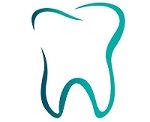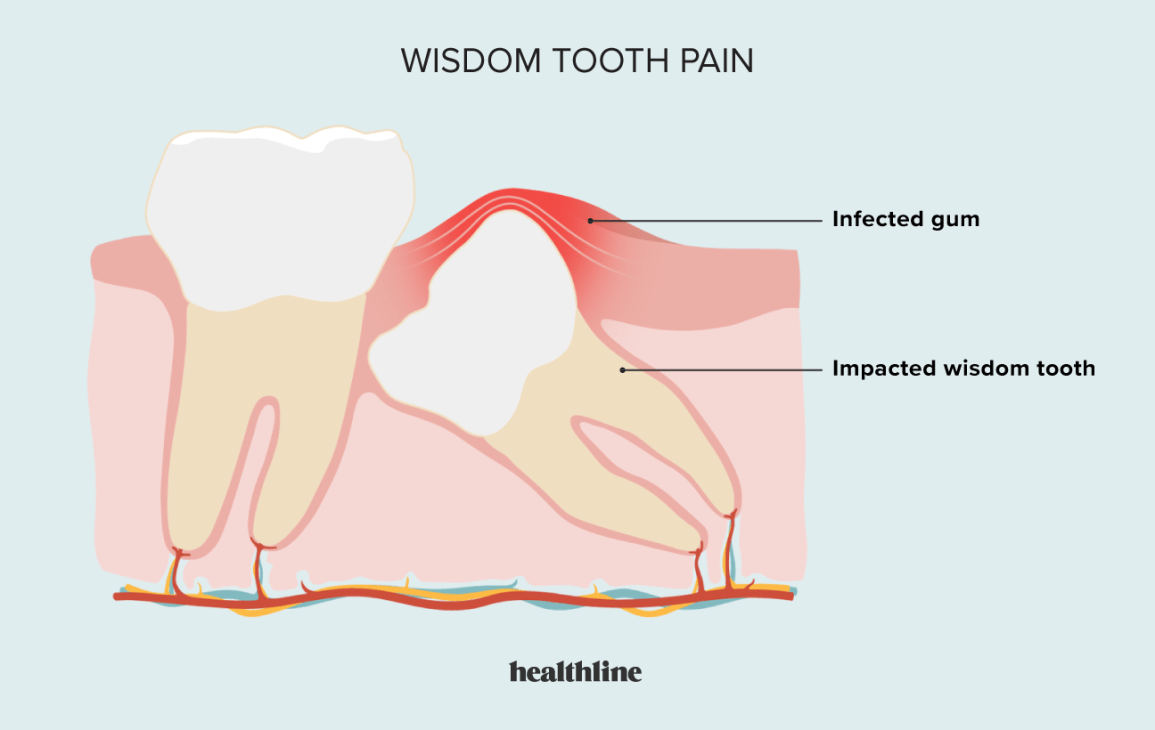Managing Pain and Discomfort From Oral Infections
Are pesky oral infections causing you to feel like a volcano ready to erupt? Don’t fret, because managing the pain and discomfort from these infections is within your reach.
When faced with oral infections, it’s important to arm yourself with knowledge about the symptoms and available remedies. From soothing home remedies to over-the-counter medications, there are plenty of options to alleviate your discomfort.
However, if the pain persists, it’s crucial to seek professional dental care for a thorough evaluation and treatment. Remember, prevention is key, so implementing good oral hygiene practices can help keep future infections at bay.
With the right approach, you can conquer the pain and discomfort from oral infections, and regain your peace of mind.
Key Takeaways
– Prompt treatment is important to prevent further complications from oral infections.
– Swelling and redness in the mouth can make it difficult to eat or speak properly.
– Toothache and sensitivity to hot or cold food and drinks are common symptoms of oral infections.
– Bad breath and a persistent unpleasant taste can indicate the presence of an oral infection.
Understanding Oral Infections
Understand the causes and symptoms of oral infections to effectively manage pain and discomfort.
Oral infections are caused by the overgrowth of harmful bacteria in the mouth. Poor oral hygiene, such as not brushing and flossing regularly, can contribute to the development of these infections. Additionally, certain medical conditions, such as diabetes, can weaken the immune system and make individuals more susceptible to oral infections.
It’s important to be aware of the symptoms of oral infections, as early detection can prevent further complications. Common symptoms include toothache, swollen gums, bad breath, and a persistent metallic taste in the mouth. If left untreated, oral infections can spread to other parts of the body and lead to serious health issues.
To effectively manage pain and discomfort from oral infections, it’s crucial to seek professional dental care. Dentists can diagnose the infection and recommend appropriate treatment options, which may include antibiotics, mouth rinses, or dental procedures. Maintaining good oral hygiene practices, such as regular brushing and flossing, can also help prevent future oral infections.
Identifying Common Symptoms
If you’re experiencing swelling and redness in your mouth, it could be a sign of an oral infection.
Another common symptom is a toothache and sensitivity, especially when consuming hot or cold food and drinks.
Additionally, bad breath and a persistent unpleasant taste can also indicate the presence of an oral infection.
Swelling and Redness
You can easily spot swelling and redness as common symptoms of oral infections. When an infection occurs in your mouth, it can cause the tissues to become inflamed, resulting in swelling and redness. This swelling can be seen and felt, and it may make it difficult for you to eat or speak properly.
Additionally, the affected area may appear red and irritated. Swelling and redness are often accompanied by pain and discomfort, making it important to seek prompt treatment. Ignoring these symptoms can lead to further complications, such as the spread of infection or the development of abscesses.
If you notice any swelling or redness in your mouth, it’s essential to consult a dentist or oral healthcare professional for an accurate diagnosis and appropriate treatment.
Toothache and Sensitivity
Experiencing toothache and sensitivity are common symptoms of oral infections. These symptoms can range from mild discomfort to severe pain, and they can greatly affect your daily life.
Here are some key points to help you identify these symptoms:
– Toothache:
– Persistent pain in a specific tooth or area of your mouth.
– Pain that worsens when you bite down or apply pressure.
– Sensitivity to hot or cold temperatures.
– Sensitivity:
– Discomfort or pain when consuming hot, cold, sweet, or acidic foods and drinks.
– Sensitivity to air or cold wind when breathing through your mouth.
If you’re experiencing any of these symptoms, it’s important to consult your dentist for a proper diagnosis and treatment. Ignoring toothache and sensitivity can lead to further complications and worsen the underlying oral infection.
Bad Breath and Taste
When dealing with an oral infection, it’s important to be aware of the common symptoms such as bad breath and a change in taste.
Bad breath, also known as halitosis, can be one of the first signs of an oral infection. It occurs when bacteria in the mouth break down food particles and release foul-smelling gases. If you notice that your breath has a persistent unpleasant odor, it could be a sign of an infection.
Additionally, a change in taste can also indicate an oral infection. You may notice a metallic or bitter taste in your mouth, which can affect your enjoyment of food and drinks.
Paying attention to these symptoms can help you identify and address oral infections early on.
Home Remedies for Pain Relief
To alleviate the pain and discomfort caused by oral infections, try regularly using home remedies for pain relief. These remedies can provide temporary relief while you seek professional dental care.
Here are some effective home remedies to consider:
– Saltwater rinse: Mix half a teaspoon of salt with eight ounces of warm water and use it as a mouthwash. This can help reduce swelling and kill bacteria in your mouth.
– Clove oil: Apply a small amount of clove oil to the affected area using a cotton ball or swab. Clove oil contains eugenol, which has natural analgesic and antibacterial properties.
– Ice pack: Applying an ice pack to the outside of your cheek can help numb the pain and reduce swelling.
– Over-the-counter pain relievers: Nonsteroidal anti-inflammatory drugs (NSAIDs) like ibuprofen can provide temporary pain relief. Follow the dosage instructions carefully.
Over-the-Counter Medications
Now let’s talk about over-the-counter medications to manage your pain and discomfort from oral infections.
These medications can provide effective pain relief, but it’s important to be aware of potential side effects.
Remember to carefully follow the recommended dosage and administration instructions to ensure safe and effective use.
Effective OTC Pain Relief
If you’re experiencing pain and discomfort from an oral infection, using effective over-the-counter pain relief medications can provide significant relief.
Here are two options to consider:
– Nonsteroidal anti-inflammatory drugs (NSAIDs): NSAIDs such as ibuprofen and naproxen sodium can help reduce inflammation and relieve pain. They work by inhibiting the production of certain chemicals in the body that cause pain and swelling. It’s important to follow the recommended dosage and avoid exceeding the maximum daily limit.
– Topical oral pain relievers: These medications come in the form of gels, ointments, or liquids that can be applied directly to the affected area. They often contain benzocaine or lidocaine, which numb the area and provide temporary relief. It’s essential to carefully read and follow the instructions on the packaging to ensure safe and effective use.
Potential Side Effects
Consider the potential side effects of over-the-counter medications when managing pain and discomfort from oral infections. While these medications can provide temporary relief, they may also come with unwanted consequences.
Common side effects include:
– Drowsiness
– Dizziness
– Upset stomach
– Allergic reactions such as rash or itching
Nonsteroidal anti-inflammatory drugs (NSAIDs) can cause stomach ulcers or bleeding, especially when taken in high doses or for prolonged periods. Acetaminophen, when taken in excess, can lead to liver damage.
It’s important to carefully read and follow the instructions on the packaging, and never exceed the recommended dosage.
If you experience any severe or persistent side effects, it’s crucial to seek medical attention. Always consult with a healthcare professional before starting any new medication to ensure it’s safe and appropriate for your specific situation.
Dosage and Administration
To properly manage pain and discomfort from oral infections, it’s important to carefully follow the recommended dosage and administration guidelines for over-the-counter medications. Here are some key points to keep in mind:
Dosage:
– Read the label: Always start by reading the instructions on the medication packaging. This will provide you with important information on the recommended dosage for adults and children.
– Follow the instructions: Stick to the recommended dosage and avoid exceeding the maximum daily limit. Taking more than the recommended dose can be harmful and may lead to unwanted side effects.
Administration:
_max_bytes(150000)_strip_icc()/1059316-article-pain-relief-for-an-abscessed-tooth-remedies-5a71feccba61770037b63b44.png)
– Take with food: Some medications may require you to take them with food to minimize stomach irritation. Make sure to follow these instructions to ensure maximum effectiveness and minimize any potential discomfort.
– Use a measuring device: When administering liquid medications, use a measuring device that’s provided or recommended by the manufacturer. Avoid using household spoons, as they may not provide accurate measurements.
Seeking Professional Dental Care
When experiencing pain or discomfort from oral infections, it’s important for you to promptly schedule an appointment with a dental professional. Seeking professional dental care is crucial in managing and treating oral infections effectively. Dentists have the necessary expertise and tools to accurately diagnose the underlying cause of your pain or discomfort. By seeking their help, you can receive the appropriate treatment and prevent the infection from worsening.
A dental professional will conduct a thorough examination of your mouth, which may include X-rays and other diagnostic tests, to determine the extent of the infection. They’ll then recommend the most suitable treatment plan based on your specific condition. This may involve prescribing antibiotics to eliminate the infection, performing a root canal procedure to remove infected pulp, or even extracting the tooth in severe cases.
Additionally, dentists can provide valuable guidance on oral hygiene practices to prevent future infections. They can educate you on proper brushing and flossing techniques, as well as recommend antibacterial mouthwashes or dental rinses to maintain oral health.
Delaying or avoiding professional dental care can lead to worsening of the infection, increased pain, and potential complications. Remember, seeking timely treatment from a dental professional is the key to managing pain and discomfort caused by oral infections effectively.
Preventing Future Oral Infections
To prevent future oral infections, maintain a consistent oral hygiene routine. Taking care of your oral health is essential in preventing the occurrence of oral infections. Here are some tips to help you keep your mouth healthy and infection-free:
– Brush your teeth twice a day: Make sure to brush your teeth thoroughly for at least two minutes each time. Use a soft-bristled toothbrush and fluoride toothpaste to effectively remove plaque and bacteria.
– Floss daily: Along with brushing, flossing plays a crucial role in removing food particles and plaque from between your teeth and along the gumline. It helps prevent the buildup of bacteria that can lead to infections.
– Rinse with mouthwash: Using an antimicrobial mouthwash can help kill bacteria and reduce the risk of infection. Rinse your mouth with mouthwash after brushing and flossing for added protection.
– Maintain a healthy diet: A balanced diet rich in fruits, vegetables, and whole grains can boost your immune system and help fight off infections. Limit your intake of sugary and acidic foods, as they can contribute to tooth decay and increase the risk of infections.
– Visit your dentist regularly: Regular dental check-ups and cleanings are crucial in preventing oral infections. Your dentist can identify any potential issues early on and provide necessary treatments or recommendations.
Frequently Asked Questions
Can Oral Infections Be Contagious and Spread From Person to Person?
Yes, oral infections can be contagious and spread from person to person.
The infection can be transmitted through direct contact with saliva or by sharing objects like toothbrushes or utensils.
It’s important to maintain good oral hygiene practices, such as regular brushing and flossing, to prevent the spread of these infections.
Additionally, avoiding close contact with individuals who’ve oral infections and seeking prompt treatment can help minimize the risk of contagion.
Are There Any Specific Foods or Drinks That Can Worsen Oral Infections?
Are there any specific foods or drinks that can worsen oral infections?
Yes, there are certain foods and drinks that can exacerbate oral infections. Sugary snacks and beverages, such as soda and candy, can feed the bacteria in your mouth and contribute to the growth of infection.
Additionally, acidic foods like citrus fruits and vinegar-based dressings can irritate the infected area and cause more discomfort.
It’s best to avoid these items and focus on consuming a balanced diet to promote oral health.
How Long Does It Usually Take for an Oral Infection to Heal on Its Own?
On average, it typically takes about 7-10 days for an oral infection to heal on its own. However, the healing time can vary depending on the severity of the infection and how well you take care of your oral health.
It’s important to follow good oral hygiene practices, such as brushing and flossing regularly, to aid in the healing process.
If the infection doesn’t improve or becomes worse, it’s best to consult with a dentist for further evaluation and treatment.
Are There Any Alternative or Complementary Therapies That Can Help Manage Pain From Oral Infections?
Are there any alternative or complementary therapies that can help manage pain from oral infections?
Yes, there are several options available. Some people find relief by using warm saltwater rinses or applying a cold compress to the affected area. Over-the-counter pain medications like ibuprofen can also help alleviate discomfort. Additionally, herbal remedies such as clove oil or tea tree oil may have soothing properties.
It’s important to consult with a healthcare professional to determine the best course of action for your specific situation.
Can Stress or Other Emotional Factors Contribute to the Development of Oral Infections?
Yes, stress and other emotional factors can contribute to the development of oral infections. When you’re stressed, your immune system may weaken, making it harder for your body to fight off infections.
Additionally, stress can lead to poor oral hygiene habits, which can increase the risk of infection.
It’s important to manage your stress levels and practice good oral hygiene to prevent oral infections.
Conclusion
Overall, managing pain and discomfort from oral infections requires a combination of home remedies, over-the-counter medications, and professional dental care.
By understanding the symptoms and seeking appropriate treatment, you can find relief and prevent future infections.
Take care of your oral health to ensure a pain-free and comfortable life.

Welcome to my website! My name is Jett Kirkland, and I am a passionate and dedicated Dental Educator with a strong focus on periodontal treatments, oral infections and care, dental laser therapy, and holistic gum health. With years of experience in the dental field, I am committed to providing valuable information and resources to help individuals achieve optimal oral health.

